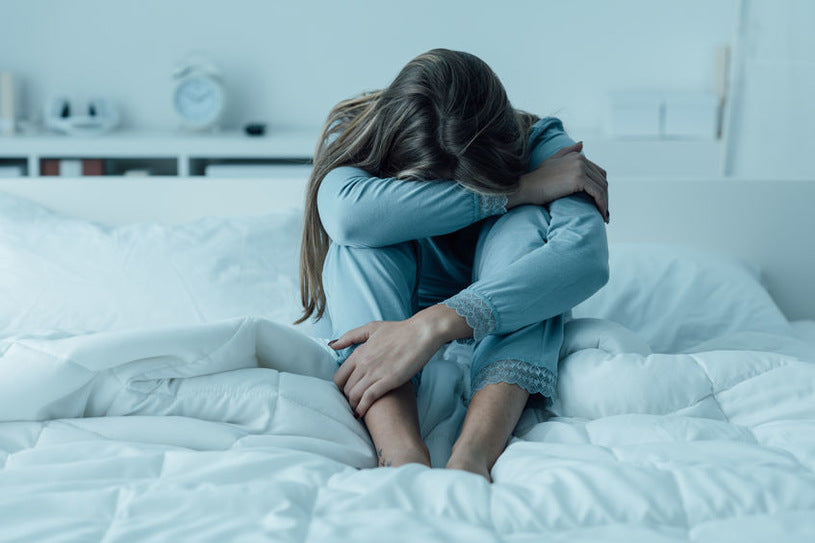Sleeping With PTSD

Posttraumatic stress disorder, or PTSD, can wreak havoc on a person’s life and relationships—and sleep habits. If you’re suffering from PTSD, there is help and there is hope. Here are a few things you can do to help yourself—and when to get help from someone else.
What is PTSD?
Posttraumatic stress disorder is a result of experiencing one or more traumatic events—military service, a natural disaster, an attack, or a major accident. Everyone will suffer reactions in these cases, but for many the sense of hyper-vigilance and “replay” of the incident(s) fade over time as people heal mentally and physically. In cases of PTSD, such post-traumatic symptoms may surface months or even years after the initial event—or happen continuously and with increasing severity.
If you replay the event over and over in your mind either while you’re awake or in your dreams; if you feel unable to relax; if you startle easily; or if you suffer from repeated negative thoughts and emotions related to the event(s) you may have PTSD.
PTSD and Sleep
The nightmares, racing mind, and restlessness associated with PTSD can make it feel almost impossible to sleep. The use of drugs or alcohol to self-medicate can further mess with your sleep patterns. If you have PTSD, here’s what you can do:
- Create a schedule for yourself. Proper sleep hygiene can go a long way toward helping your body to fall asleep.
- Write down your worries. Keep a “worry book” or journal and write in it for 30 minutes before bed. Give your thoughts, fears, and emotions room for 30 minutes, and then set it down for the night.
- If you wake up, get up. Don’t lie in the dark thinking about a nightmare. Turn on a light (preferably dim), have a cup of tea, read for awhile—or write in your “worry book” again. Find an activity that cuts down on the cycle of repetitive or negative thinking, so that you can rest again.
- Meditate or find other positive stress-relieving activities. Learning to manage stress is one of the best things you can do during the day to help yourself relax and fall asleep at night.
PTSD is a life-changing disorder. Working toward deep, restful sleep can be one of the best things you can do to put yourself on the road to recovery.
If your symptoms keep you from sleeping, interfere with your relationships, or have a negative impact on your day-to-day activities, get help. Talk to a friend or find a counselor who can help you get a handle on your fears and anger. You are not in it alone.
Author Bio: +Michelle Gordon is a sleep expert who researches and writes about sleep and health, and is an online publisher for the latex mattress specialist Latexmattress.org.


